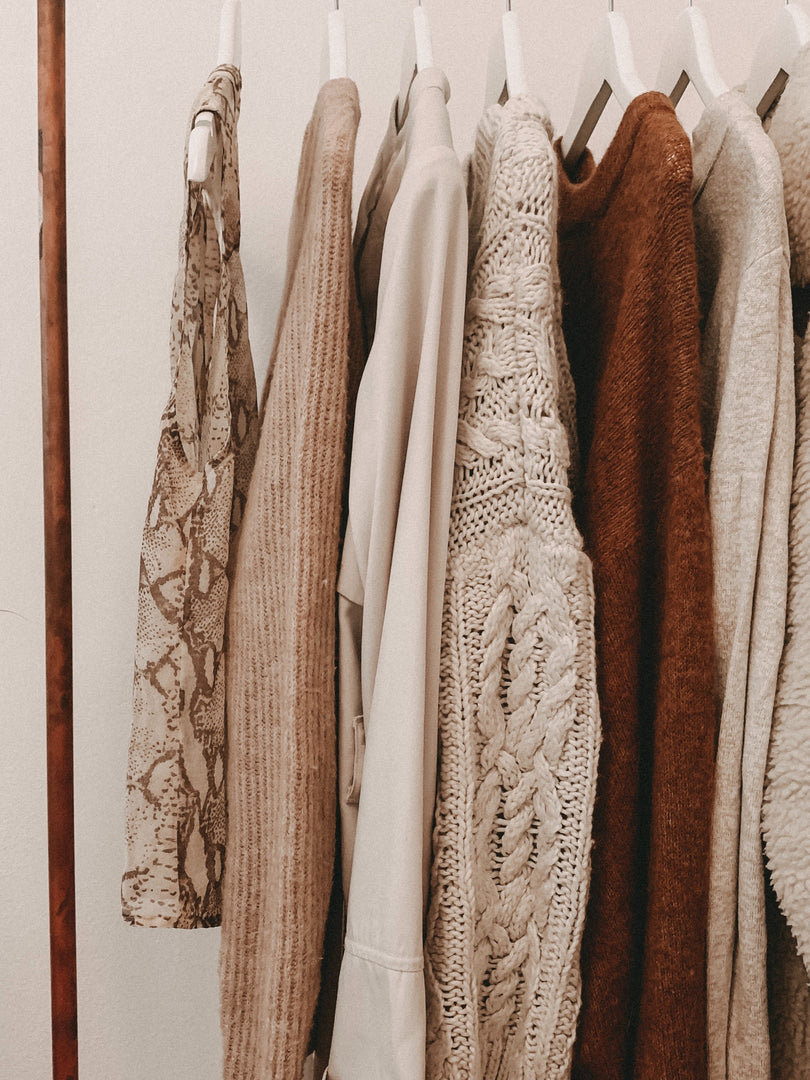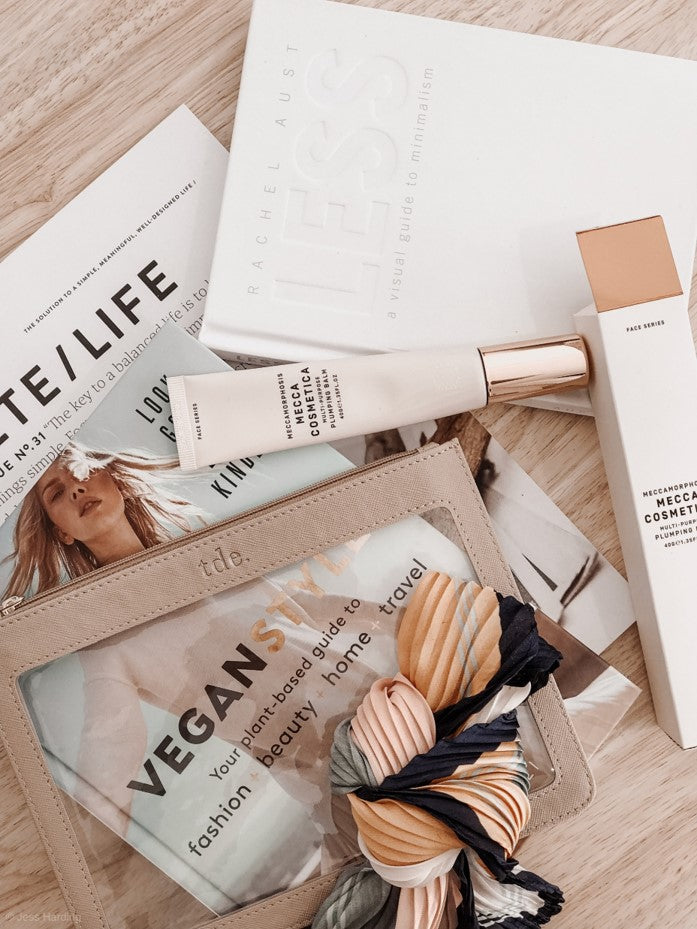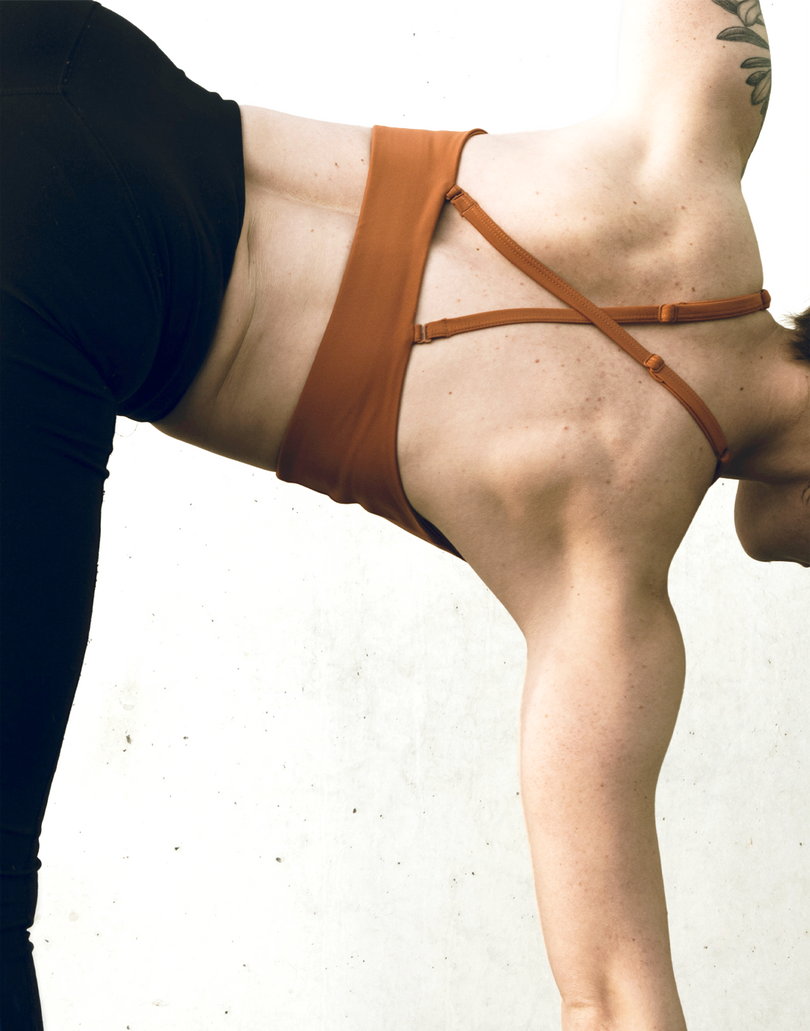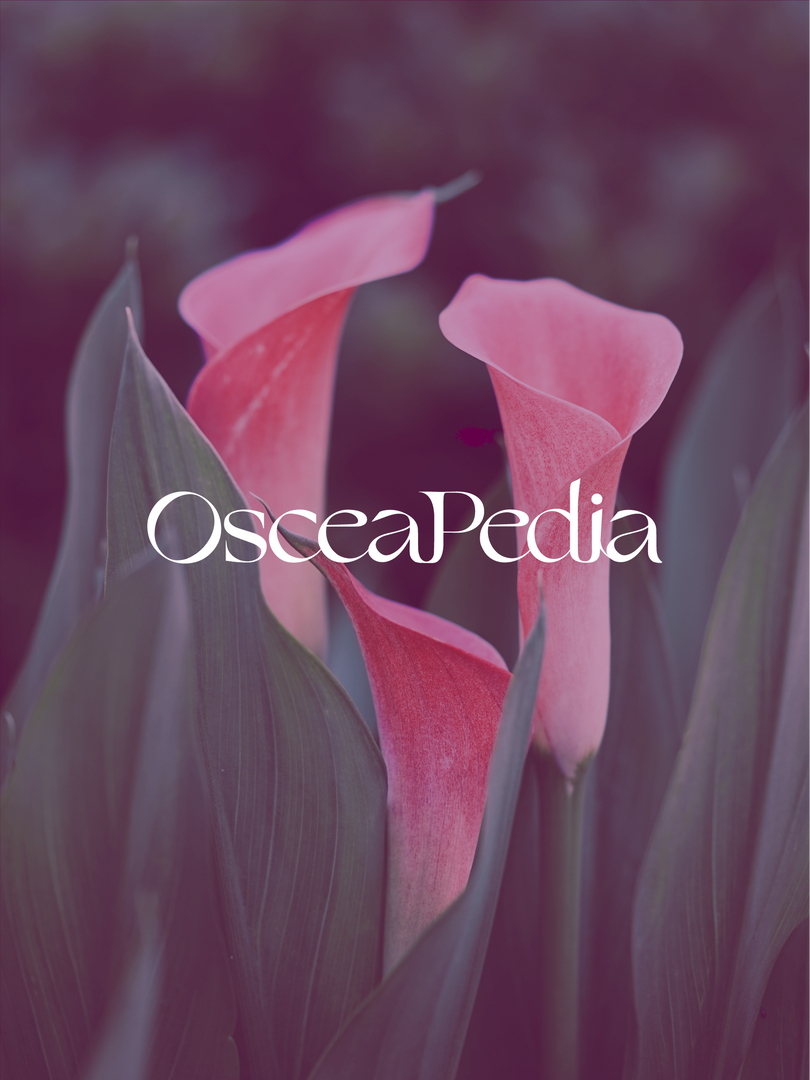It is said that at any singular moment in time, around half of the world’s population is wearing jeans or other denim clothing items. Perhaps the most universal garment ever, jeans are everywhere, and for good reason: they’re sturdy, reliable, and versatile. Unfortunately, this ubiquitous garment comes with hefty environmental and ethical concerns due to issues such as its water-hungry production process, pesticide usage, and harmful dyes. Ethical jeans offer a way for jeans to remain a closet staple, but consciously.
What are the environmental and ethical concerns surrounding conventional denim?
As with many other garments, the first sustainability issue with denim can be found in the garment’s material composition. Denim is traditionally made of 100% cotton. When people think of cotton, they probably also think of the word natural, and thus they associate it with being good for the environment. Unfortunately, the matter isn’t as simple as this. Often referred to as the dirtiest crop in the world, conventional cotton is produced with an abundance of pesticides and insecticides—according to the Environmental Justice Foundation, cotton production accounts for 6% of the world’s pesticide usage and 16% of the world’s insecticide usage. These toxic chemicals are associated with adverse neurological, carcinogenic, respiratory, and reproductive impacts, just to name a few. In addition, due to their high exposure factor, individuals who work with pesticides and insecticides can experience poisoning, hospitalization, and in some cases, death. The effects of these toxic chemicals aren’t just limited to humans, though, and they also harm animals and the environment due to reasons such as chemical runoff and water supply pollution. Although traditional denim is 100% cotton, many brands also utilize synthetic fibers in their jean compositions, such as elastane or polyester. Synthetic fibers are incredibly taxing on the environment. Among other eco-friendly concerns, synthetic fibers depend on fossil fuels, are non-biodegradable, and contribute to micro-plastic pollution.
From the cotton growing to the dyeing and processing, a single pair of jeans requires an enormous volume of water. According to the American Chemical Society, in totality, manufacturing a pair of denim jeans uses over 2,500 gallons of water. With an estimated 4 billion denim garments being produced annually, the consequences of this water-hungry process are immense. Additionally, there are other serious sustainability and health concerns involved with conventional denim processing. Indigo dyes are the most popular choice for denim dyeing. While natural indigo is made from plants, most indigo dyes are synthetic and are made from petrochemicals and combined with environmentally-detrimental sulphur dyes. Engineering artificial indigo dye involves a multitude of hazardous chemicals, including formaldehyde and aniline. These conventional indigo dyes pose numerous health risks and are carcinogenic. Additionally, these dyes, along with the chemicals that are incorporated and even heavy metals from the jean production process, are a massive water pollutant through the wastewater from denim production.
Apart from getting dyed, denim also gets treated through processes such as sandblasting, microsanding, and chemical washing to attain the washes and fit that we are so used to. These conventional processes typically employ hazardous chemicals, pose serious health risks to workers, and pollute the environment.
How do ethical jeans offer a solution?
While the term ethical jeans might sound paradoxical, sustainable clothing brands are turning this eco-friendly vision into a reality. Brands creating ethical jeans skip the toxic chemicals and dyes, and they limit their water and energy usage. The Ellen MacArthur Foundation laid out thorough guidelines needed to transform the denim industry. This transformation prescribes that industry players take sustainable actions such as crafting jeans that are suitable for recyclability, using a minimum of 98% cellulose-based fibers in the denim compositions, and eliminating harmful chemicals from jean production. When shopping for your sustainable denim, look for brands that utilize sustainable cellulose fibers like organic cotton, Lyocell, Tencel, and Hemp in their production. In addition, for the sake of your health and the environment’s health, look for brands that utilize nontoxic dyes and processing methods.
Buying second-hand jeans is another avenue to take to acquire a pair of ethical jeans. In this case, you are extending the life cycle of a product that has already been made, keeping it out of landfills. In addition, you are not supporting the creation of a new pair of jeans, so you are minimizing your resource usage and carbon footprint.
For a great selection of ethical jeans, check out these 5 sustainable denim brands.
1. Ética

From sleek skinny jeans to groovy wide legs, Ética offers well-crafted, consciously-curated sustainable denim for many style preferences. Translating to ethics or ethical in Spanish, Ética seeks to be a virtuous brand through Fair Labor practices, community outreach initiatives, and meticulous material sourcing. When purchasing from Ética, you don’t have to worry about hazardous substances sneaking into the production of your ethical jeans—the company solely utilizes Bluesign certified low impact chemicals in their denim washing and dyeing. Currently, Ética reports that through their clean technologies and other sustainable actions, they have been able to use 90% less water, 63% less energy, and 70% less chemicals than the denim industry standard. As the brand has jeans with both conventional cotton and organic cotton, we recommend opting for jean styles using the latter to make the most sustainable choice.
2. Boyish

For vintage styles with modern twists (that are sustainable, of course!), Boyish does it best. Creating ethical jeans that minimize waste and synthetics, Boyish boasts a commendable material list, featuring eco-friendly fibers such as organic cotton, recycled cotton, Lyocell, and Tencel. Boyish is conscious about their entire production processing, evidenced through initiatives such as GOTS Certified Facilities, non-toxic dye usage, and plant-based shipping bags. The brand also addresses the immense water usage problem with conventional denim by using ⅓ of water compared to conventional cotton and recycling 100% of the water that they use. These efforts are just a few among many of Boyish’s sustainable initiatives. The brand takes an incredibly transparent and holistic approach to sustainability. You can find more on this approach here (https://www.boyish.com/pages/sustainability).
3. Nudie Jeans

One great strategy for making more sustainable shopping choices is choosing garments that don’t come and go with trends. With a focus on timeless, seasonless designs, Nudie Jeans delivers just this. Committed to reducing waste and ensuring garment longevity, Nudie also offers repair spots for your jeans and a re-use line where you can donate and buy second-hand, revitalized Nudie denim. Additionally, Nudie Jeans is incredibly innovative with their transparency. Some of their styles, such as the “Breezy Britt Friendly Blue”, features a transparency feature where you can see every step in the production process, where this step took place, and whether or not Nudie Jeans visited this facility. In addition, the brand not only acknowledges its positive eco-friendly strides, but also recognizes the strides it still has to make to be a completely sustainable brand by comprehensively outlining their material lists.
4. Warp + Weft

Photo Credit: warpweftworld.com
A brand that boasts size-inclusivity and comparative affordability, Warp + Weft makes ethical jeans that are accessible without skimping on quality or fit. Using 10 gallons of water for each pair of jeans and recycling 98% of this water, Denim from Warp + Weft is truly working to change the industry standard. One cool feature about Warp + Weft is their vertical manufacturing scheme; Warp + Weft oversees every step in their production process, which allows them to be efficient and ecological. It's important to note that Warp + Weft does use proportions of unsustainable materials like elastane and polyester in their production, so this is something to consider when deciding which pair of ethical jeans is for you. To navigate these concerns, we recommend choosing an option with extremely minimal unsustainable fabric composition.
5. Levi’s SecondHand

Photo Credit: secondhand.levi.com
If you’re not ready to part from your iconic Levi’s styles, then this one’s for you. Like the name suggests, Levi’s Secondhand is Levi’s reseller platform, where they collect (in exchange for a gift-card), clean, and resell denim Levi’s garments. This keeps these jeans out of our landfills, and it also results in broken in ethical jeans that fit and feel just right. You can find awesome vintage treasures as well as modern styles through Levi’s SecondHand.
The large and negative environmental impact of conventional denim might have led you to believe that ethical jeans were an impossibility. Luckily for us conscious shoppers, there is hope for a more eco-friendly denim future. Thanks to ethical denim brands, jeans can remain a staple in our closets, sustainably.
Sources:
- https://discovered.ed.ac.uk/permalink/44UOE_INST/7g3mt6/alma9924144722002466
- https://doi.org/10.1021/acs.estlett.0c00498
- https://www.frontiersin.org/articles/10.3389/fpubh.2016.00148/full
- https://sustainability.ucsf.edu/3.717
- https://doi.org/10.1016/B978-0-08-102043-2.00005-8
- https://ejfoundation.org/news-media/the-casualties-of-cotton
- https://ellenmacarthurfoundation.org/the-jeans-redesign
- https://emf.thirdlight.com/link/1jxg1ysqnxil-mz55wp/@/#id=0
- https://www.panaprium.com/blogs/i/cotton-environmental-impact











